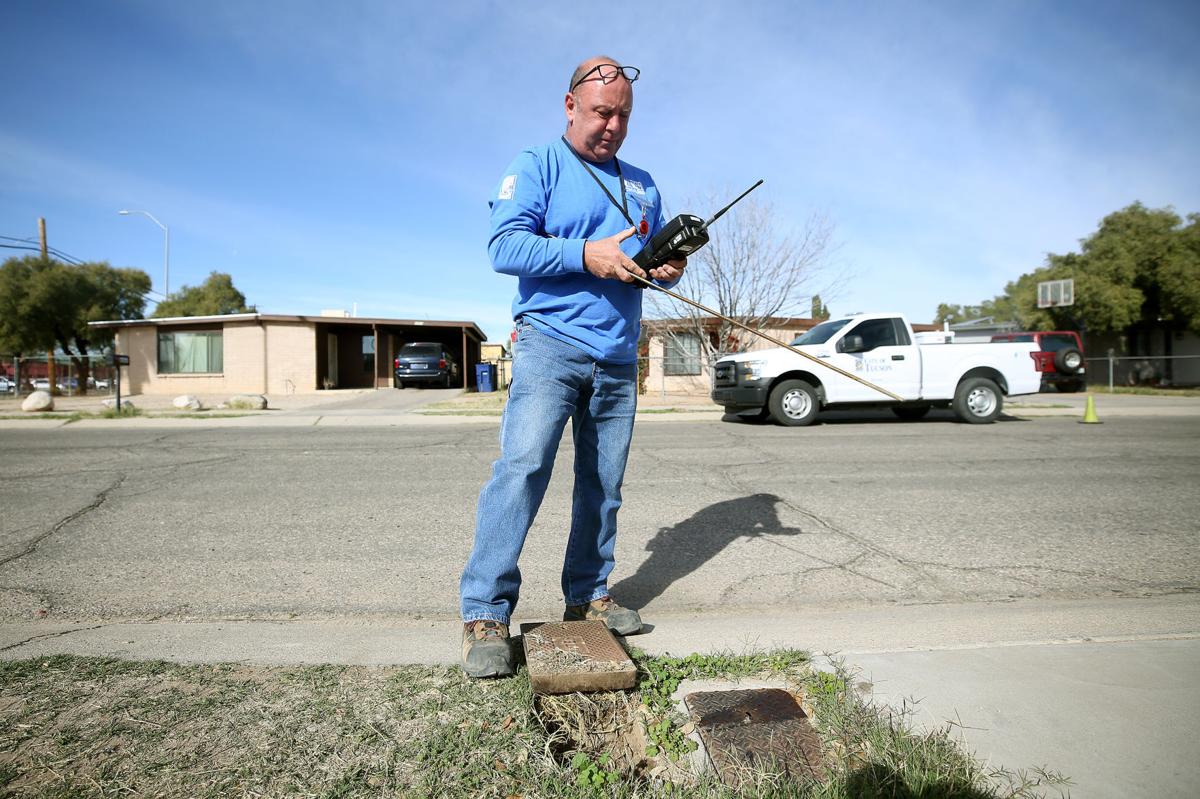The Tucson City Council voted unanimously Tuesday to impose a 10% differential rate with a higher tiered cost based on water usage for customers in unincorporated areas.
Councilman Paul Cunningham proposed a motion to implement the rate hikes for Tucson Water customers in unincorporated Pima County to take effect on Dec. 1, 2021.
City staffers project the differential rate will create $9.9 million for the utility, which the motion directs to be used in the following areas:
Infrastructure and maintenance upgrades to enhance water delivery from within the city limits to outside the city limits.
Climate resiliency and water sustainability for recharge, retention and reclamation projects primarily outside the city limits and enhancing tree canopy throughout the entire Tucson Water system.
Financial resiliency in the form of expansion of the low-income program and a one-time paydown of eligible delinquent accounts that have been negatively impacted by COVID-19.
Cunningham’s motion directs the city’s staff staff to complete “a broad cost-of-service analysis that is based upon the rates in option seven (the adopted rate structure) and further consider the economic environmental benefit to the region, considers annexation and incorporation and recognizes that as the owner of the utility, the city bears risks and liabilities that the county does not.”
Council members unanimously voted in April to begin the process of raising rates for some Tucson Water customers. The rate increases will not affect Tucson Water customers in jurisdictions such as Oro Valley, Marana and South Tucson, but rather unincorporated county areas including the Catalina Foothills and Avra Valley.
The average Tucson Water customer in unincorporated Pima County uses about 7,500 gallons of water for a monthly bill of about $50.28, according to the city. Under the new rate structure, this would increase to $56.45.
“As the stewards of our water utility and our water resources, mayor and council is responsible to make the best decisions available to be able to preserve the water resources, not just for our residents now, but into the future,” Mayor Regina Romero said. “Even though the motion has the cost-of-service analysis, this is much more based on the climate reality we live in and on the conservation that we have to take.”
The city says it takes more water, and more water infrastructure, to serve unincorporated areas. According to city staffers, 29% of Tucson Water customers live in unincorporated Pima County and 36% of the utility’s pipelines serve these areas. They also say unincorporated residents use 43% more water than city customers.
But a central argument circulating against differential rates is that there has not been a cost-of-service study conducted to determine if it costs more money for the city to provide water to unincorporated areas.
While the motion calls for the cost-of-service study, it’s not clear if it will be completed before the new rates are imposed. Therefore, the differential rate for unincorporated areas has been decided before the study determines how much it costs to provide water to said areas.
Councilman Steve Kozachik asked if City Attorney Mike Rankin was comfortable with announcing a rate structure before a cost-of-service study is conducted.
Rankin said he was, as the city’s notice of intention in April provided data on eight different rate options, including the one adopted. He said the City Council isn’t limited to establishing a differential rate on only a cost-of-service study.
“The city bears certain risks and liabilities that are different, and that are not borne by the unincorporated county or its customers,” Rankin said. “So there are justifications beyond the cost of service that make a differential rate defensible.”
Chris Avery, the principal assistant city attorney, looked into the legality of imposing differential rates based on an existing state statute and the Tucson city code at the City Council’s direction after its June 8 meeting. Both suggest increasing water rates should be based on the cost of providing water.
One state statute says a municipality shall not increase water rates without indicating “the overall expenses for providing water or wastewater service.”
The Tucson city code says water rates shall “be consistent with the policy for charging for water in direct proportion to the cost of securing, developing and delivering water to the customers of the city water system.”
Avery points to an Arizona Supreme Court ruling that said municipally owned water utilities can charge more for water service outside its “corporate limits.” Ultimately, he recommended any differential rate adopted undergo a cost-of-service study before final adoption in order to withstand any legal challenges to the reasonability of the rates.
However, Avery said since revenues generated will stay within the utility, “Tucson Water’s rates, in the aggregate, are ‘cost-of-service’ rates.”
Although Cunningham included a cost-of-service study in his motion, ultimately, the cost of providing water to unincorporated jurisdictions isn’t why he supports differential rates.
“I want to be really clear that I agree that the cost of service is necessary, it’s an important piece to this. But it’s not why we’re doing the differential rate. This has always been a policy decision for me,” he said. “We’re the ones serving you water, we’re the ones who backstop the utility.”
A mother javelina and her babies made a visit to a northwest neighborhood Monday, June 21, 2021. If you get such a visit, keep a safe distance and enjoy the wildlife from a distance. Video courtesy of Stacey McMullen.





